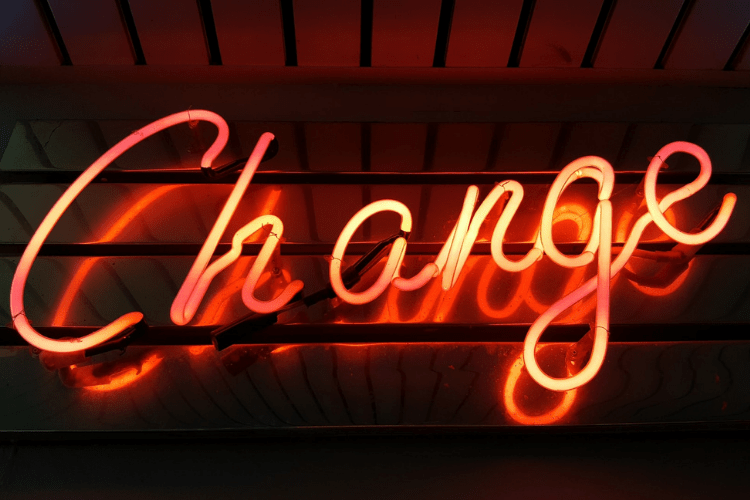I recently listened to a podcast episode about Amazon’s long overdue but still exceedingly shortsighted climate pledge. This pledge only came about because enough workers were willing to put their jobs on the line and force Amazon’s hand to cut its carbon emissions. Initially, Jeff Bezos refused to support the carbon plan, and shareholders voted against a proposal that would force Amazon, one of the world’s largest companies, to commit to climate action.
Imagine what would happen if a company like Amazon took drastic measures to curb carbon emissions. If, instead of profit, it committed to an environmentally conscious business model that ran throughout its operations and supply chains. Can you imagine if Amazon became a Certified B Corporation? The ripple effects would touch a multitude of industries and impact nearly every corner of the planet.
The world we live in is ripe for radical disruptions — from the way we live, learn, and consume to the way we move, invest our time, and interact with each other.
And that’s not even to mention the behavior and expectations Amazon would demonstrate to companies of every shape, size, and origin if it committed to a business model centering the climate crisis and awareness of intersectionality.
If the coronavirus pandemic and the subsequent global lockdown proved anything, it’s that the systems upon which we’ve built society do not serve the greater good. Yet, people seem eager to rush back to “normal,” even as they admit that “normal” is clearly broken.
This is true even in the tourism industry, which seemed at one point, interested in pursuing new, more sustainable models of operation. From digital vaccine passports to flight corridors, the vast majority of solutions currently being floated out from the industry are merely bandaids that continue to hold together a broken model. For example, instead of pushing for vaccine equity so that all destinations can get back to business, tourism’s international bodies continue to center privileged travelers above all else, which reinforces the yawning gap between the haves and the have-nots.
In writing a recent article about the aviation sector, I kept mulling over the idea that there really doesn’t seem to be a sound and urgent solution to cutting the sector’s carbon emissions. Sure, there is research into sustainable aviation fuels and more efficient technology, but we’re decades out from anything that will make a meaningful difference.
What works right now? Getting airplanes out of the air and supporting new modes of transportation so people can travel.
In other words, we need a radical disruption of what we know and understand aviation to be. It requires a culture change and shift in thinking about what we as individuals and we as a tourism industry should prioritize for the betterment of humanity.
Radical disruption requires being open to completely reimagining what we consider to be the norm.
With that in mind, I was particularly disturbed to read this quote from a GlobalData representative in a recent TravelDailyNews article (emphasis is mine): “To combat the flight shaming movement, airlines must take all possible actions to ensure passengers do not choose alternative transport, especially on short-haul routes. As electric rail travel becomes more popular – with extensive networks across Europe and Asia – airlines risk passengers jumping to more environmentally friendly options. If progress to make the airline industry greener is slow, then the impacts could be far-reaching.”
In this article, the representative emphasizes the urgency with which the aviation industry must develop strategic partnerships to ensure environmental sustainability. But we should all be alarmed if the aviation sector’s main concern is losing passengers who opt for more climate-conscious choices rather than making drastic — if controversial and less profitable — decisions that benefit all people and the planet rather than shareholders.
Radical disruption sometimes requires completely rethinking an industry. Maybe it shrinks. Maybe it goes away. Maybe it evolves into something new. Maybe these things have to happen because what exists right now no longer works.
The world we live in is ripe for radical disruptions — from the way we live, learn, and consume to the way we move, invest our time, and interact with each other. But radical disruption requires being open to completely reimagining what we consider to be the norm.
It requires smashing the tiny box in which we operate to see and work toward the bigger picture — even if that requires prioritizing other industries and communities on the way to strengthening our own.
It requires thinking, asking, experimenting, trying, and putting completely crazy ideas out in the world just in case something brilliant sticks … and works!
It requires listening to and collaborating with unconventional partners on the way to building a safer, more equitable, and more regenerative future, not only within the tourism industry but far beyond it.



